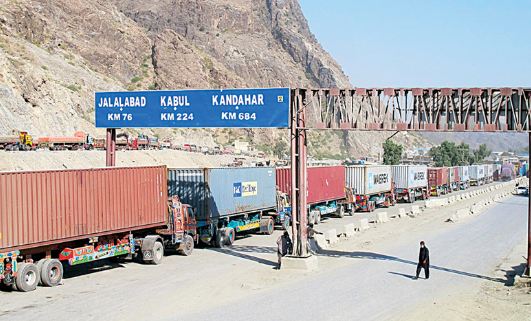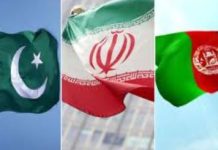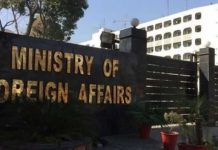Webinar on Regional Connectivity and Maritime Security held
DNA
Islamabad: Pakistan-based research and media lab, South Asia Times (SAT), achieved a significant milestone with its debut webinar titled “Regional Connectivity and Maritime Security: Pakistan, Afghanistan, and Beyond.” The event united experts, policymakers, academics, and practitioners to discuss the vital role of connectivity and maritime security in shaping South Asia’s future.
In an era defined by unprecedented globalization and interdependence, the importance of regional connectivity and maritime security has never been more pronounced. The Maritime Silk Route, steeped in historical significance encompassing trade, culture, and diplomacy, has reclaimed its strategic importance in shaping the geopolitical landscape. Furthermore, regional connectivity initiatives, such as the Trans Afghan Railway Line, have emerged as compelling drivers with implications for both geopolitics and geo-economics.
The webinar served as a comprehensive platform for leading minds to exchange insights, identify challenges, and propose innovative solutions pertaining to regional connectivity and maritime security, with a specific focus on Pakistan and Afghanistan. Central to these deliberations was the acknowledgment of Pakistan’s pivotal role as a critical node in the fabric of regional connectivity projects and the Maritime Silk Route. Its strategic significance as a conduit for trade and energy flows, bridging landlocked regions like Afghanistan and Central Asia with the Arabian Sea, was a key highlight. Additionally, Pakistan’s position as a gateway for Iran to foster connections with its neighboring nations was underscored.
The unique challenges posed by Afghanistan’s landlocked status added depth to the discussions. Afghanistan, poised for stability and development, aims to leverage its strategic positioning to become a nucleus for regional trade and transit corridors. The webinar examined how Afghanistan’s integration into regional connectivity projects and the Maritime Silk Route can be harnessed to stimulate economic growth, bolster regional stability, and foster cross-border cooperation.
Esteemed panelists, including Dr. Abdul Latif Nazari, Acting Deputy Minister of Economy, IEA; H.E. Mr. Fereydon Priloren, Deputy Counsel General of the Islamic Republic of Iran, Quetta, Dr. Nazir Hussain, Professor at Quaid-e-Azam University, Islamabad; and Ms. Amna Malik, President of COPAIR; Pakistan, provided invaluable insights, infusing the discussions with their expertise and diverse perspectives.
The keynote address, delivered by Vice Admiral (Retd) Ahmed Saeed HI(M), Director General of the National Institute of Maritime Affairs (NIMA), delved into the challenges, strategies, and shared prosperity associated with navigating the course of regional connectivity and maritime futures.
SAT’s inaugural webinar marks a step towards fostering cross-border cooperation, partnerships, and envisioning shared prosperity and security for South Asia.












